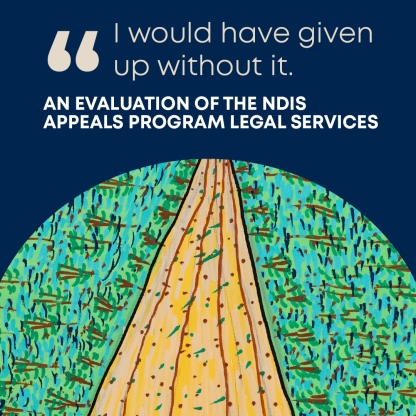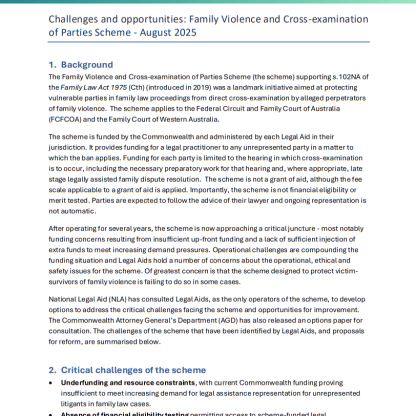The Impact Economics Justice on the Brink report commissioned by National Legal Aid found $484 million in funding per year is required to meet unmet demand for Legal Aid by expanding in the availability of family and civil law, providing greater access under the means test and increasing private practitioner fees.
Demand for Legal Aid has been driven by population growth and increasing legal need, with new data showing the number of people accessing Legal Aid Commission websites and hotlines across Australia doubling and tripling in recent years.
The report comes as the Commonwealth Government undertakes a review of the National Legal Assistance Partnership – the agreement which funds the legal assistance sector – led by Dr Warren Mundy.
The report found investing in Legal Aid would deliver $600 million in economic and social benefits in return including cost savings from dispute resolution, improved livelihood reduced pain and suffering and avoided costs to government.
National Legal Aid Executive Director Katherine McKernan said failing to fund Legal Aid would deny people access to justice.
Legal Aid remains chronically underfunded. There is a longstanding gap between legal assistance need and legal assistance funding.
Dr Emily Millane, from Impact Economics and one of the report authors, has identified the current issues as ones that will compound in the future.
“If we fail to make the necessary investment today, the annual cost of a dysfunctional system will grow alongside the bill for necessary structural repair.
“Denied justice costs more in the long run. Economic costs, health costs, and ultimately, costs to wellbeing,” she said.
Legal Aid Commissions are the key providers of legal assistance to people experiencing disadvantage in Australia. Commonwealth funding is a vital component of this and supports legal assistance in areas such as family law, disability, social security, migration, discrimination, sexual harassment, and disasters. By engaging clients early and addressing their civil and family law matters, Legal Aid aims to help alleviate socio-economic difficulty and keep people out of the criminal justice system.
The volume and complexity of legal issues in the community continues to outpace any growth in Legal Aid’s ability to respond. In Victoria, the Public Understanding of Law Survey found that for every 10 respondents there are over 12 legal problems, with over half of those problems needing legal assistance that is not available.
Despite this growing demand, the report warns of a “justice deficit” with only eight per cent of households across Australia meeting the strict income and assets tests for accessing Legal Aid.
Ms McKernan said funding for the sector has fallen despite a 2014 Productivity Commission report recommending $200 million in additional Commonwealth funding.
This funding was never provided and instead, Commonwealth funding has shrunk in per capita terms, falling from $18.59 to $18.10 in the decade to 2021-22.
“This unmet legal need disproportionately impacts disadvantaged communities, including First Nations people, people living with disability, and poorer people.
Legal assistance is more than just representation and includes early intervention advice and information, referrals and support and when systemic issues are identified such as Robodebt, strategic litigation and systemic advocacy.
In-house and private Legal Aid practitioners interviewed for the report painted a picture of a sector that is overwhelmed, underpaid, and unable to properly serve the community, with pay for Legal Aid lawyers not keeping up with comparable wages overtime because of funding constraints. The Commonwealth pays its own lawyers between 70 and 226 per cent higher than the fees paid to lawyers by Legal Aid.
Ten years ago the Productivity Commission recommended the Government invest in legal assistance to fix this system but the problem was ignored. Ten years on the direct and indirect costs of inaction have multiplied



